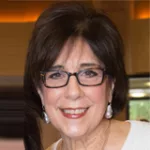New Trends in Retirement Planning

I recently attended the annual three-day virtual Retirement Coaches Association (RCA) Conference. Financial planning wasn’t on the agenda. Instead, thought leaders and experts shared information and compelling reasons and resources on different topics as to why planning for the non-financial side of retirement is relevant, needed, and growing.
As a certified non-financial retirement transition coach, I soaked in a lot of information and left motivated to share some of the new trends with anyone planning for retirement or recently retired.
6 Trends to Contemplate
Where to Live When You Retire
Ryan Frederick, CEO of Here, a recognized thought leader, spoke about the intersection of place and healthy longevity. Where you live is more than a physical place. It is one of the most important decisions you make. It shapes one’s purpose, relationships, health, financial well-being, and more. There are pros and cons to living options upon retirement, from remaining in a current home to downsizing, intergenerational living, co-housing, senior living, and more. Research each option before “moving in.”
Aging While Black
Raymond Jetson, chief executive at MetroMorphosis, delivered a discussion on “Aging While Black in America.” He pointed out that Black people face a unique set of circumstances shaped by the social, economic, and political inequalities they have faced throughout their lives. His platform centers on three pillars in addressing the needs of Black elders:
- Recalibrating the village
- Embracing innovation and rapid change
- Leaning into the spirit of Sankofa, an African concept of using the past to improve the present and build a better future
Retirement Expectations vs. Reality
Fritz Gilbert, founder of The Retirement Manifesto, and Eric Weigel, retirement architect, shared survey results of 1700 pre- and post-retirees. Questions were focused on what individuals expect when they retire. Key findings were:
- There is more to retirement transition than being prepared financially.
- There is a significant disconnect between pre-retiree expectations and actual experiences.
- There is a need and opportunity for financial and HR professionals to play a role in helping clients and employees make a smooth transition. Purpose, identity, social network, and phased retirement are essential topics.
Embarking on a New Career After You Retire
Kerry Hannon, a workplace futurist and strategist on career transitions, gives the following recommendations about moving into an encore career:
- Be open to new possibilities; don’t replicate old jobs
- Network, network, network vs. not work!
- Remain active and create positive energy for yourself and others
- Remain curious and take risks
- Keep up with technology
- Embrace working for and with others younger than you. There is a lot to learn from each other
- So much is about MINDSET!
Rejuvenate!
Colleen Drummond, a retired business executive, rejects traditional retirement narratives and is innovating retirement from a “rejuvenation year” to building a rich lifestyle portfolio. She used a kaleidoscope as a metaphor for viewing this next phase of life. Depending on how one turns the dial and looks through a different lens, blind spots, opportunities, and a life beyond a career may be imagined. A year (or more), perhaps while feeling fatigued and uncertain, can be a time to explore ourselves inward and outward for what will rejuvenate retirees in the next phase of life.
Unretire
Rich Eisenberg left a prominent role as senior web editor of the Money & Security and Work & Purpose channels for Next Avenue. However, he wanted to “stay in the game.” So, he unretired. He told us he may work half days one week and not so much the next, making time to volunteer, mentor, travel, and spend time with family.
Occasionally, he has nothing on his calendar, and he’s fine with that. To succeed in unretirement, he often offers these tips: make a schedule including business and personal plans and events, set goals, don’t be afraid to say no and be intentional about doing what adds joy and fulfillment to your life.
Different Aspects of Retirement Coaching
Robert Laura, RCA founder and contributor to Financial Advisor Magazine, believes there is a new wave of interest in retirement planning. Investors, advisors, and investment firms will want to have the tools and resources to benefit clients now and in the future. Laura also shared an article by Wall Street Journal columnist Joanne Lubin. She predicts “retirement readiness” coaching will potentially become a pre-retirement company benefit.
Simon Chan, an executive and longevity and work strategist, spoke about how he is now working with colleges and universities toward building business cases and creating a structure to offer mid-life transition programs for the 50+ population.
As these trends indicate, for many, but not all, retirement planning is viewed differently from how it has been viewed in the past. What is — or will be — your view?





